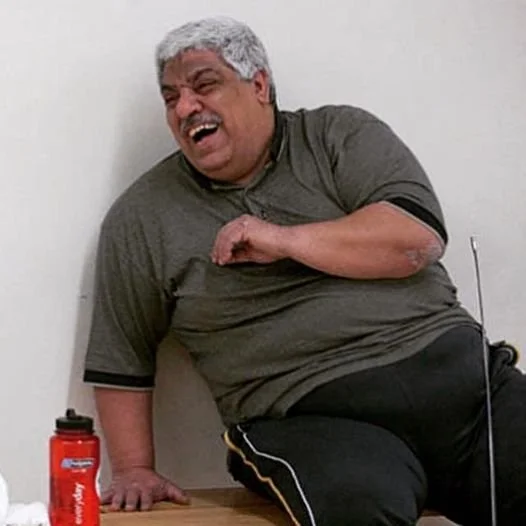3 ways to run faster
There are basically three ways to run faster.
Improve your physical fitness – endurance, muscle size, mitochondria proliferation (ability to turn food into energy for your muscles) etc.
Improve mechanical efficiency – reducing the ‘unproductive’ movement in your running so all your energy and effort goes towards moving you faster.
Increase your capacity to be uncomfortable – be able to push yourself harder for longer.
These all make intuitive sense: if your muscles are smaller and weaker, you’re wasting energy with bad form, and you slack off halfway through the race . . . you’re not gonna be your fastest.
On the other hand, if your muscles are strong, ALL your movement helps you go from point A to point B, and you’re able to push to your physical limit, you’ll be much faster.
These qualities develop together:
As you train hard to make your muscles stronger, you’re practicing enduring discomfort – or even welcoming it. Through that same process, you’re also learning, intentionally or not, more efficient patterns for your physical movements.
In clinics and 1-1 coaching sessions I frequently talk about the parallels between mental and physical training. This is a perfect example of that — Each of these mechanisms is present in mental training as well.
How do each of these show up in mental training?
FITNESS: The equivalent of this would be the brute-force strength of your mind to focus on what you choose, shut out externalities, and overcome strong emotions.*
We practice this with mindfulness, breathing techniques, and high-pressure drills, along with any other skill that requires constant focus.EFFICIENCY: Mental efficiency comes about through avoiding anything that takes our focus off of the task at hand, thus avoiding the mental ‘work’ of re-focusing.
We practice this by making competition-day plans, deciding our process ahead of time, and finding non-distracting ways to spend our down time.CAPACITY: This one is the doozie. A huge amount of mental performance comes down to this skill, that we rarely consciously practice. The mental equivalent of enduring physical discomfort is simply enduring mental/emotional discomfort – high-stress situations, nervousness about a strong opponent, fear that we won’t get the result we want, anger at a bad call, frustration or sadness over a disappointing loss . . . the ways this skill comes up are endless.
We practice this skill with mindfulness, high-pressure scenarios, and visualizing stressful situations. We also practice this anytime we choose to accept any kind of discomfort rather than fighting it.
Where else does this show up?
All of these are present in many areas of our lives.
Fitness: Directing focus to a given task is essential for most of our day-to-day activities (though it can be highly context-dependent – as a kid with severe ADHD I couldn’t sit and do homework for 5 minutes straight, but put me on a fencing strip and the rest of the world disappeared)
Efficiency: I’ve noticed a massive difference in my own productivity and stress when I’m able to eliminate distractions from my phone or extraneous to-dos (task-switching is a killer!)
Capacity to be with discomfort: This is part of every argument, every difficult conversation, even every important decision you have to make. Anytime you have that deep worry that you could be doing something better in raising your kids — all of those are moments when you either can handle the difficult feelings, or they spill over into stress that affects everyone around you.
What’s the takeaway?
Be aware of which skill you’re using, and where you may want to do a bit more work.
All of these will develop together, but sometimes one lags behind, and needs extra attention.
What to do:
Take 5 minutes now to write out a few examples of how each of these areas of mental skill comes up in your life.
Write down 2-3 ways you’re already succeeding at each of them. This is important; do not skip this step.
And, if you like, pick one (1) to work on improving. Just one for now.
Let me know how it goes!
P.S.
If you want to get on my waiting list for 1-1 coaching, click here to fill out my client interest form and be notified when I have availability.
Also keep an eye on these emails for news of upcoming clinics, or if you’d like to host a clinic at your club, contact me directly to discuss.


